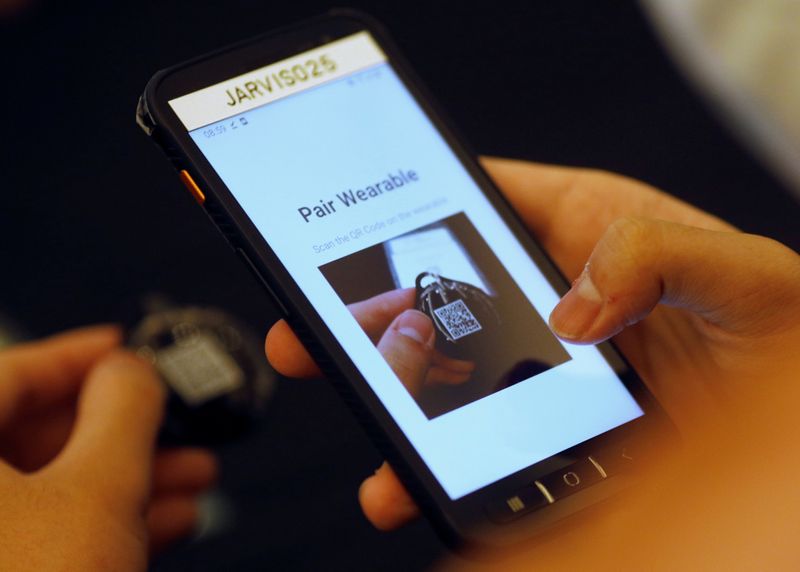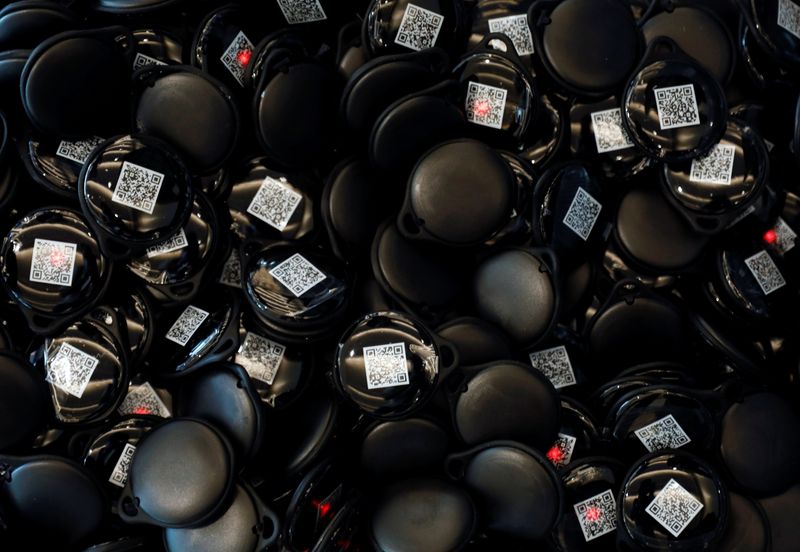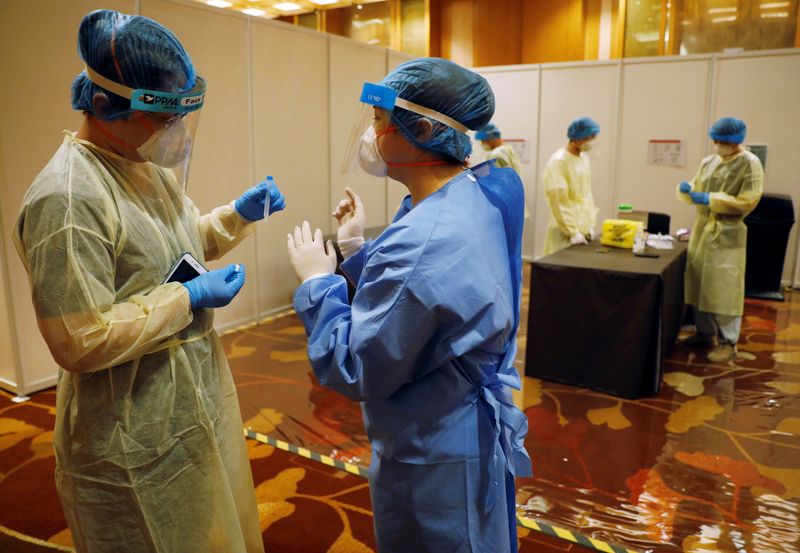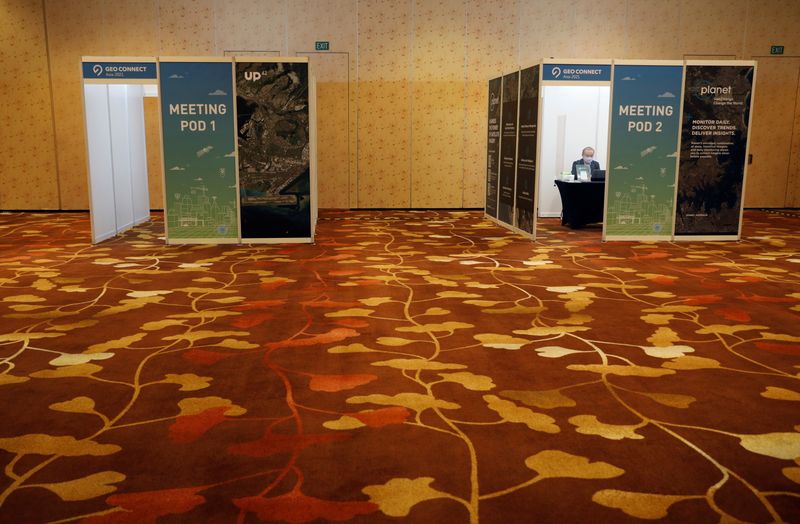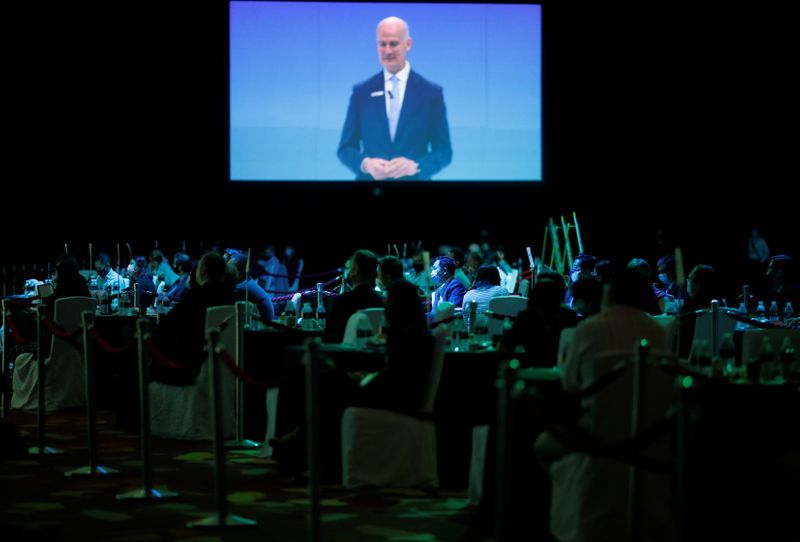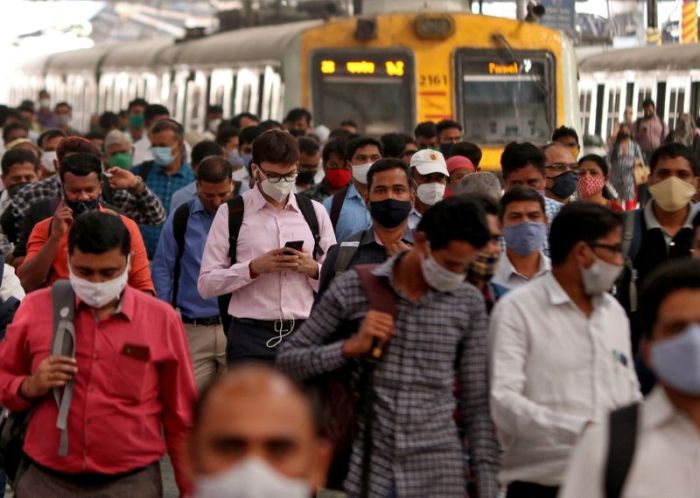SINGAPORE (Reuters) – A Singapore business gathering is using movement dongles to make sure participants keep their distance, as the region’s business hub prepares to start hosting big events safely as the world looks to move on from the coronavirus pandemic.
The pocket-sized dongle, which utilises Bluetooth technology, tracks users’ information such as location, distance and interaction time between attendees at a two-day tech conference that started on Wednesday.
The data collected will be uploaded to a system intermittently and organisers can check if anyone is breaching the government’s social distancing rules and intervene if necessary.
The event “GEO Connect Asia 2021” is also using meeting pods with transparent screens to separate participants, while speakers, venue staff and some delegates of the conference are required to undergo on-site antigen rapid tests.
Singapore has been a leader in innovative ideas to support commerce and enable business continuity during the pandemic and on Tuesday published a report commissioned by its central bank advising firms about making offices safer long-term.
Singapore is expected to host the World Economic Forum in August this year and its management of the event will be closely watched.
“Once you see what would be made out of this event, leading up to the World Economic forum … it’s going to be step-by-step, country-by-country, confidence-building exercises,” said Rupert Owen, organiser of the conference.
The movement tracker, use of which is not compulsory at the conference, is different to Singapore’s contact-tracing dongle “TraceTogether”, which says it shares data only in response to confirmed infections.
The conference has divided participants into zones and to reduce frequency of contact. A typical breach would be being less than one metre apart from someone from another zone for more than 15 minutes.
The makers of the dongle also provided facial-recognition and a Quick Response, or QR code, contactless check-in system for the event.
(Reporting by Chen Lin; Editing by Martin Petty)

